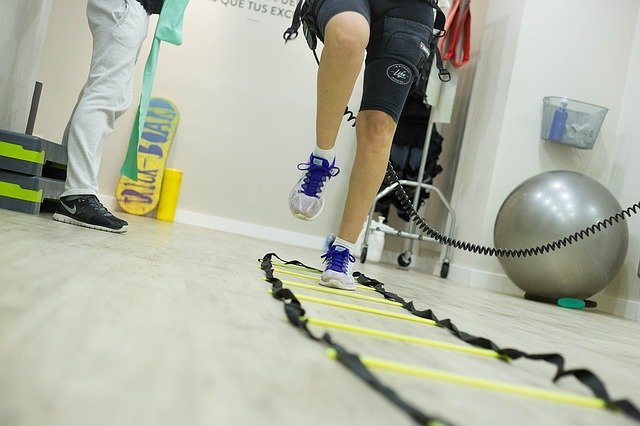8 September is World Physiotherapy Day. As physiotherapists remind us, the importance of physiotherapy cannot be underestimated. - It supports treatment, always helps and sometimes allows surgery to be avoided, argues physiotherapist Mateusz Pepłowski.
- 8 September is World Physiotherapy Day
- Physiotherapy is a medical science gaining increasing recognition, despite huge advances in medical therapies
- Physiotherapists are the third most numerous medical profession in Poland after doctors and nurses
- A physiotherapist becomes a physiotherapist after completing a five-year master's degree, completing six months of professional practice and passing a state examination authorising them to practise the profession.
Today is World Physiotherapy Day
Mateusz Pepłowski, a physiotherapist at the Carolina Medical Center clinic in Warsaw, says in the information provided to PAP that the discipline he applies always helps. However, it is important to remember that a physiotherapist supports the treatment process, but does not cure. However, it often improves the results of treatment.
- A physiotherapist with knowledge of the appropriate techniques is able to select various stimuli aimed at mobilising our body. Our body knows perfectly well how it is supposed to function optimally and regenerate itself if necessary, e.g. a broken bone rebuilds itself after appropriate supply. The problem arises when our body is unable to activate, maintain and complete these processes in a timely manner. This is when the healing process requires the intervention of specialists, the inclusion of pharmacotherapy and, increasingly, surgical intervention," he explains.
Physiotherapy helps patients with neurological conditions such as Parkinson's disease, multiple sclerosis or strokes.
- Although the neurological changes in such patients remain irreversible, systematic rehabilitation allows them to remain fit and independent for as long as possible, the physiotherapist argues.
"There are times when physiotherapy can avoid surgery".
Patients undergoing orthopaedic surgery, such as endoprosthesis or ligament reconstruction, benefit from rehabilitation.
- It is a good idea to start such rehabilitation even before the operation, as it aims to reduce pain, swelling and inflammation, and to speed up recovery after the planned operation. In order for the effects to last and for further progress to be made, the therapy should also be continued after leaving hospital," he points out.
Sometimes physiotherapy can avoid surgery. This is not possible if there is a complete rupture of the ligament, and there are no rehabilitation techniques to remedy this. However, rehabilitation can help with degenerative changes resulting from overload. However, it must be applied early enough.
"If we see a specialist during the first stages of the changes, which last for years and, in addition, do not hurt, we are able to help ourselves just with rehabilitation. However, if the degenerative changes progress to the last levels, then we are no longer able to effectively rehabilitate the patient in question and will most likely end up with surgical intervention," explains the physiotherapist.
Physiotherapy for children and adults
Physiotherapy generally helps when the structural changes are not yet advanced. Often, then, selecting appropriate exercise and physical activity, changing diet or bad daily habits related to the functioning of the body is sufficient.
"Babies can receive physiotherapy from day one," assures the physiotherapist.
- In some children, we may observe certain deviations in motor development from the norm, which may be the result of a congenital defect or disease, or may be an individual characteristic. In such cases, it is advisable to consult a doctor and physiotherapist, who will select appropriate methods and measures to support the child's development.
The physiotherapist points out that in children, as in adults, it is very important to react quickly so as not to miss the so-called golden period, when rehabilitation is most effective and efficient. "Let's remember that children have a capital metabolism and a tremendous capacity for regeneration of the body. The later the rehabilitation starts, the greater the risk of irreversible changes," he stresses.
More and more hospitals are offering comprehensive six-week post-operative rehabilitation free of charge. Mateusz Pepłowski believes that this is a good solution because the operating doctor knows best what recommendations the patient should receive.
Different types of physiotherapy
In the case of rehabilitation covered by the National Health Fund, a referral from the doctor with whom you are having your conditions treated is necessary.
"A referral is also necessary for rehabilitation holidays or sanatorium and spa treatment. The insurer then decides who can benefit from such an offer and determines the rehabilitation process, the type of treatments and their frequency," he explains.
There are different types of physiotherapy, such as:
- pulmonary physiotherapy,
- orthopaedic rehabilitation,
- gynaecological-urological physiotherapy,
- physiotherapy for athletes
- and that used in intensive care units.
Source: rynekzdrowia.pl

